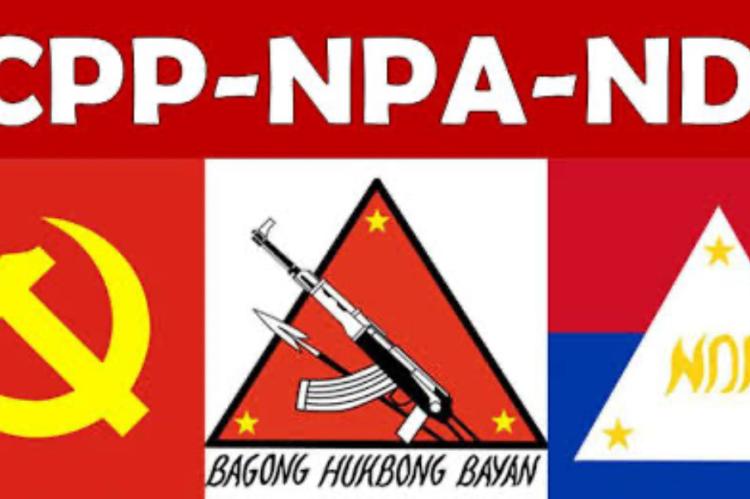CPP's get-out-of-jail card
“As the Philippine government considers reviving peace talks, the government, judiciary, and security forces mustrecall the lessons of the past.”
The recent arrest of Porferio Tuna, Jr., a former National Democratic Front of the Philippines (NDFP) consultant during the 2016 peace talks, and the potential revival of formal negotiations between the Government of the Philippines and the NDFP have brought renewed attention not only to the peace process but also to a long-standing Communist Party of the Philippines (CPP) tactic aimed at rescuing their prominent leaders from incarceration.
Twice arrested, Mr. Tuna Jr., also known as Ka Ampong to his close comrades and Ka Simon Santiago to the media, is a prominent CPP regional cadre in Southern Mindanao.
Over the years, the peace process has become a convenient mechanism for the CPP-NPA-NDFP to liberate their imprisoned cadres. This ploy, essentially a ticket-to-freedom racket, allows top communist leaders to use their involvement in peace negotiations as a way to secure release from jail—often with little to no intention of returning to custody if talks break down.
First arrested in October 2015, Mr. Tuna, Jr. was slapped with at least six criminal cases, including murder and serious illegal detention. His odds of being releasedseemed unlikely, with multiple charges stacked heavily against him.
However, in 2016, the tides shifted for Mr. Tuna, Jr. and 21 other detained CPP-NPA-NDFP members when they exploited a familiar escape route. Using the peace negotiations as a pretext, they secured temporary liberty under the guise of being "consultants" for the peace talks in Oslo, Norway. Before he knew it, Tuna went from being jailed to jet-setting across international borders, thanks to this strategic ploy.
Political playbook for peace talks
The CPP-NPA-NDFP’s involvement in peace negotiations dates back decades, but over time, it has become clear how these peace talks are used as a strategy to rescue their top leaders.
It began with Jose Maria Sison himself, who, in the mid-1980s, took advantage of then-President Corazon Aquino's offer of amnesty in the aftermath of the first EDSA uprising. Joma was able to leave for Europe under the guise of participating in "international engagements."
When the Aquino administration didn't turn out as advertised, CNN went to war again. Meanwhile, Sison, safely settled in Europe, continued guiding the communist movement from a distance, far removed from the renewed violence in the Philippines.
In 2016, 22 detained communist leaders were temporarily released under the pretext of participating in the negotiations in Oslo, Norway. They were either declared consultants or given Documents of Identification, a privilege supposedly offered under the Joint Agreement on Safety and Immunity Guarantees (JASIG), which protects those involved in the peace talks.
Among these so-called consultants was Mr. Tuna Jr., who, after being granted bail, was expected to surrender himself to authorities if the peace talks collapsed. However, like most of his peers, Mr. Tuna Jr. took full advantage of his temporary liberty. When the talks broke down in early 2017, nearly all 22 released consultants refused to return to jail voluntarily, and many, including Mr. Tuna Jr., went back underground.
Several surrendered ranking cadres across the country have revealed that the upper echelon of communist leadership enjoys the perk of being declared consultants if arrested, regardless of whether they possess genuine DI. One former cadre, who was declared a consultant upon his arrest in 2016, admitted he was surprised to learn of his designation as an NDFP consultant.
These are not isolated incidents; they form a pattern of a sinister kind. Many of these "consultants" simply returned to the mountains to resume their insurgent activities, several of whom were re-arrested or killed in combat in the intervening years. Mr. Tuna Jr.'s former comrades in Southern Mindanao, Eduardo Genelsa and Ariel Arbitrario, faced polar opposite fates: the former surrendered in 2020 and is now living out his retirement, while the latter was killed in an armed encounter two weeks ago.
Wise up
Far from being solely a peace-building effort, the CPP, by its own admission, uses peace negotiations to advance its strategic goals. During past talks, such as in 2016, the CTGs did not halt their military operations. The temporary lull in government offensives only allowed them to regroup, rearm, revisit their bases, and reach expansion areas.
Despite the GPH's good faith in initiating peace talks, the CPP-NPA-NDFP’s well-documented history of exploiting these negotiations to rescue imprisoned leaders remains a concern. Many of these so-called negotiators have been repeatedly arrested for their involvement in violent activities, including extortion, ambushes, and kidnappings. Executive Order 70, which adopts a whole-of-nation approach to counter insurgency, recognized this tactic as part of the CPP’s strategy to manipulate the legal framework to its advantage.
The government must ensure that any forthcoming peace negotiations do not become another opportunity for the CPP-NPA-NDFP to secure the release of their incarcerated leaders. These talks should center on genuine peace-building and accountability, not serve as a vehicle for furthering insurgency goals.
As the Philippine government considers reviving peace talks, the government, judiciary, and security forces mustrecall the lessons of the past. While peace is a noble pursuit, we must not be hoodwinked again, as the CTG will likely attempt to play the "ticket-out-of-jail" card for their imprisoned leaders once again.

